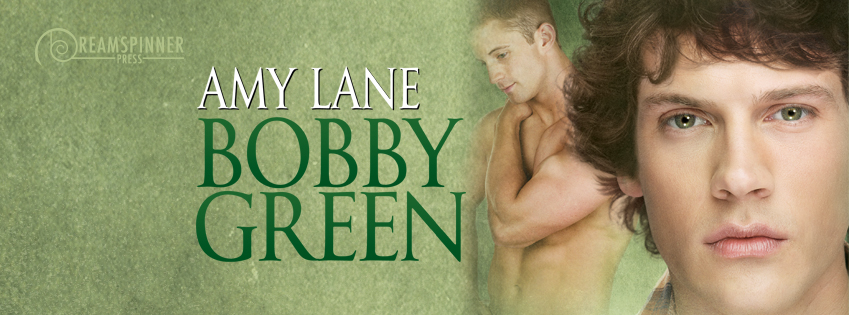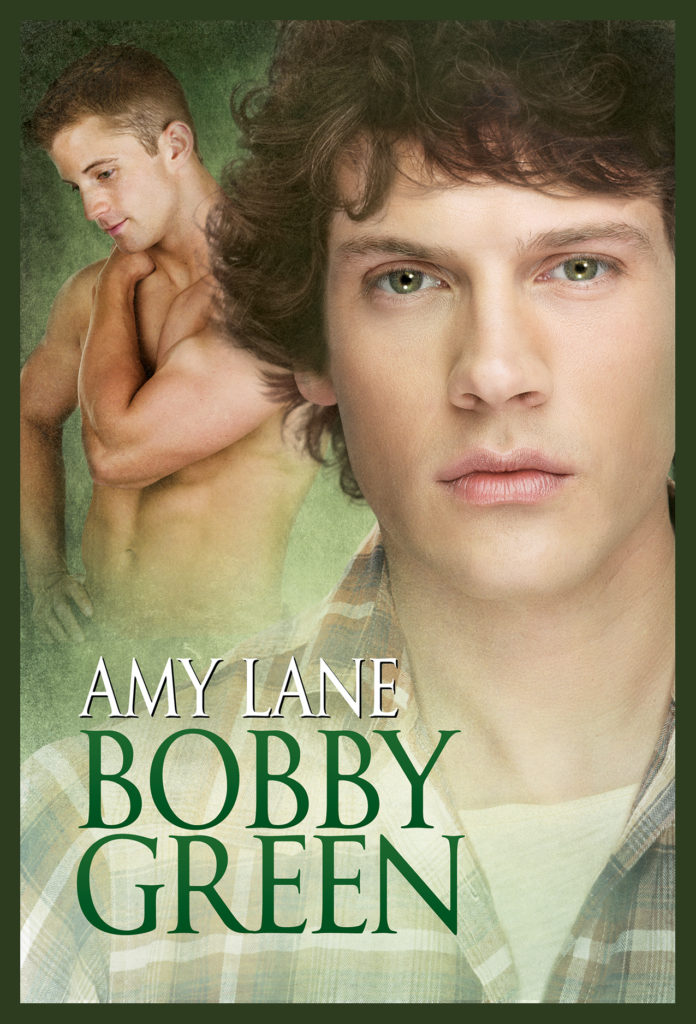A warm welcome to author Amy Lane joining us today to talk about her new release Bobby Green , part of the fabulous Johnnies series.
Welcome Amy 🙂
Hometowns By Amy Lane
Sometime, if you’re feeling bored, you should go listen to two songs with the same name to see how different they are. For the purpose of this post, I’m going to suggest, maybe, My Hometown by Bruce Springsteen, and My Hometown by Bowling for Soup.
The Springsteen song is sweet, nostalgic, a slice of Americana and the funeral paean to the smaller industrial towns and their sense of community as they disappeared from the American landscape.
Bowling for Soup is pissed off, snarky and in your face because their hometown didn’t give them anything but a bad attitude and a painful sense of compassion for the family members who are stuck there.
So, having grown up in a small town in Northern California, the kind of place that still closes down main street for the homecoming parade, you may be wondering which one of these songs I more closely identify with when thinking about my formative years.
The answer?
Both.
When I was eighteen years old, I got out of the theater after closing down a show one morning at a bout two a.m., and discovered my headlights didn’t work. This was before cell phones—and at the time the school was sitting out in the middle of a coyote’s toilet. I attempted to drive home because it was six miles away and I was the only person on the road. Of course I got pulled over, and the Sheriff, Mike Reader, pulled me over. He recognized me—his daughter had been my classmate in high school—and offered to drive home in front of me with a spotlight so he could be sure I got home okay. (This incident shows up in Bonfires, because it was just such an awesome thing to do.)
I would put this on the Bruce Springsteen small town “win” column, right? This was a good thing—this was community, this was kindness, this was watching out for each other. This was social identity, and it worked for me, because I seriously could have ended up kissing a telephone pole from the inside of my Datsun that night, and he didn’t let that happen.
On the other hand…
Let’s count the number of kids who didn’t make it out of that town alive. They got trapped there, bored and frustrated, feeling like they were in a glass jar where they could see a wide world around them, but never taste freedom. Their social identity in that tiny town was the only one they’d ever have, and everybody did know who you were, and who your father was, and if someone had the slightest bit of political weight at all, odds were it had been thrown against someone else, someone made to feel smaller, less significant.
Nobody.
And that would be where Bowling for Soup stands, where the last line of their song is a violent prayer for the singer’s big brother to get the fuck out of there, because it’s killing him.
Dogpatch, CA, is killing Vern Roberts. It’s killing his mother.
When Vern makes his move to Sacramento to become Bobby Green, he’s starving and sad before he gets his gig at Johnnies, but God, it’s better than being in that hometown. What’s funny is that once he gets settled, he ends up in a small community. But unlike Dogpatch, Johnnies is full of guys making up their own identities as they go along too, and he can deal with that.
Brotherhood and community is not a bad thing—unless you’re stuck there, like an apricot in a glass jar, sucked to rot by the fruit flies of gossip and broken dreams.
So when Bobby gets the hell out of Dogpatch, I’m torn. On the one hand, he’s left his stifling identity there and can become the person he wants to be!
On the other hand, he’s taking lessons with him that he might not realize—good ones, about how the people around him can help shape who he wants to be in a positive way.
So small towns—good or bad?
It’s like music. Some days you love Springsteen, some days it’s Bowling for Soup.
Blurb
Johnnies: Book Five Vern Roberts couldn’t wait to turn eighteen and get the hell out of Dogpatch, California. But city living is expensive, and he’s damned desperate when Dex from Johnnies spots him bussing tables. As “Bobby,” he’s a natural at gay porn. Soon he’s surrounded by hot guys and sex for the taking, but it’s not just his girlfriend back in Dogpatch—or her blackmailing brother—that keeps him from taking it. It’s the sweet guy who held the lights for his first solo scene, who showed him decency, kindness, and a smile. Reg Williams likes to think he’s too stupid to realize what a shitty hand life dealt him, but Bobby knows better. What Reg lacks in family, opportunity, education, and money, he makes up for in heart. One fumbling step at a time, they connect, not just in their hearts but in their bodies, where sex that’s not on camera, casual, or meaningless, becomes the most important thing in the world. But Reg is hampered by an inescapable family burden, and he and Bobby will never fly unless he can find a way to manage it. Can he break the painful link to his unrealized childhood and grow into the love Bobby wants to give?
Book Links:
Amy Lane is a mother of two grown kids, two half-grown kids, two small dogs, and half-a-clowder of cats. A compulsive knitter who writes because she can’t silence the voices in her head, she adores fur-babies, knitting socks, and hawt menz, and she dislikes moths, cat boxes, and knuckleheaded macspazzmatrons. She is rarely found cooking, cleaning, or doing domestic chores, but she has been known to knit up an emergency hat/blanket/pair of socks for any occasion whatsoever or sometimes for no reason at all. Her award-winning writing has three flavors: twisty-purple alternative universe, angsty-orange contemporary, and sunshine-yellow happy. By necessity, she has learned to type like the wind. She’s been married for twenty-five-plus years to her beloved Mate and still believes in Twu Wuv, with a capital Twu and a capital Wuv, and she doesn’t see any reason at all for that to change.





